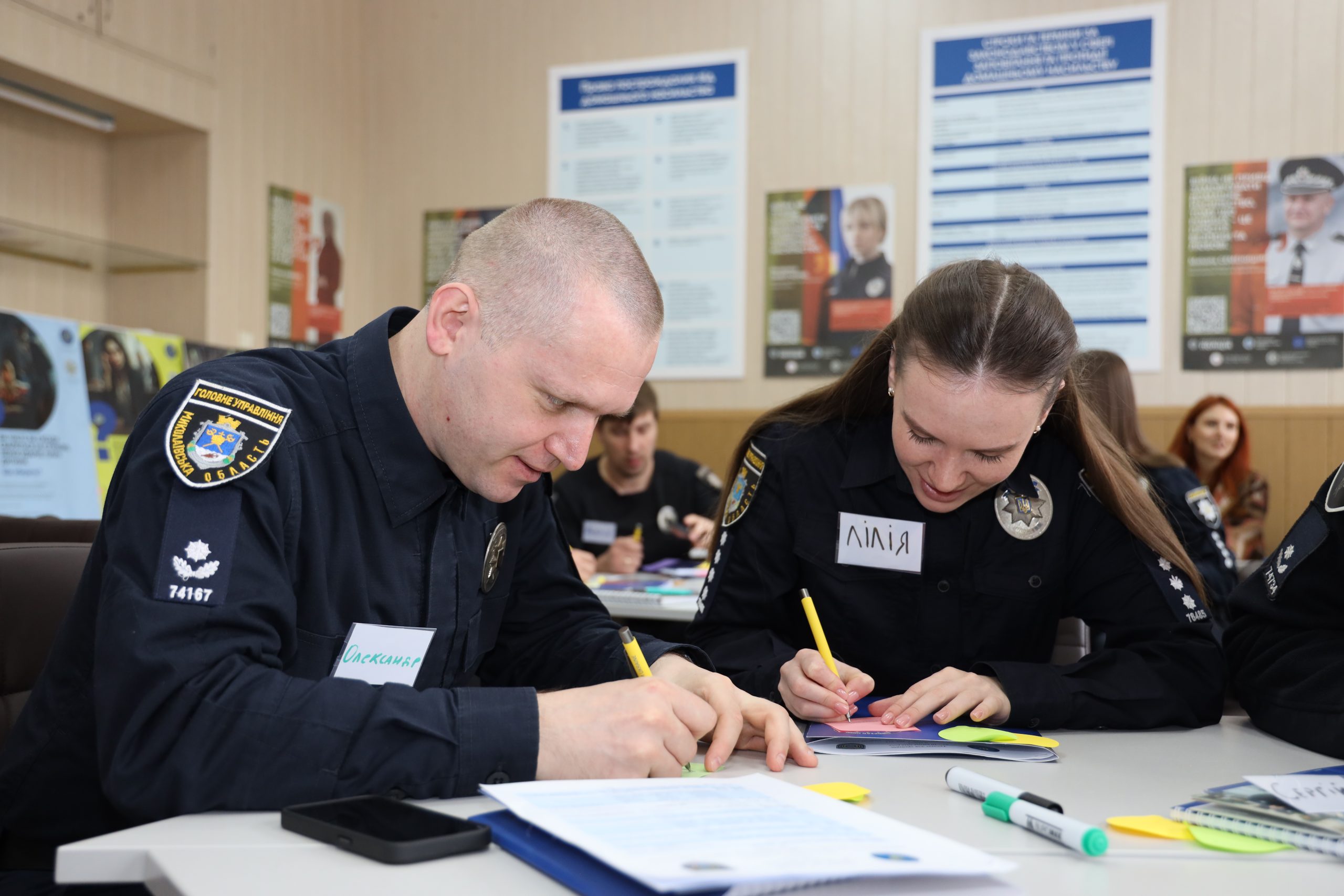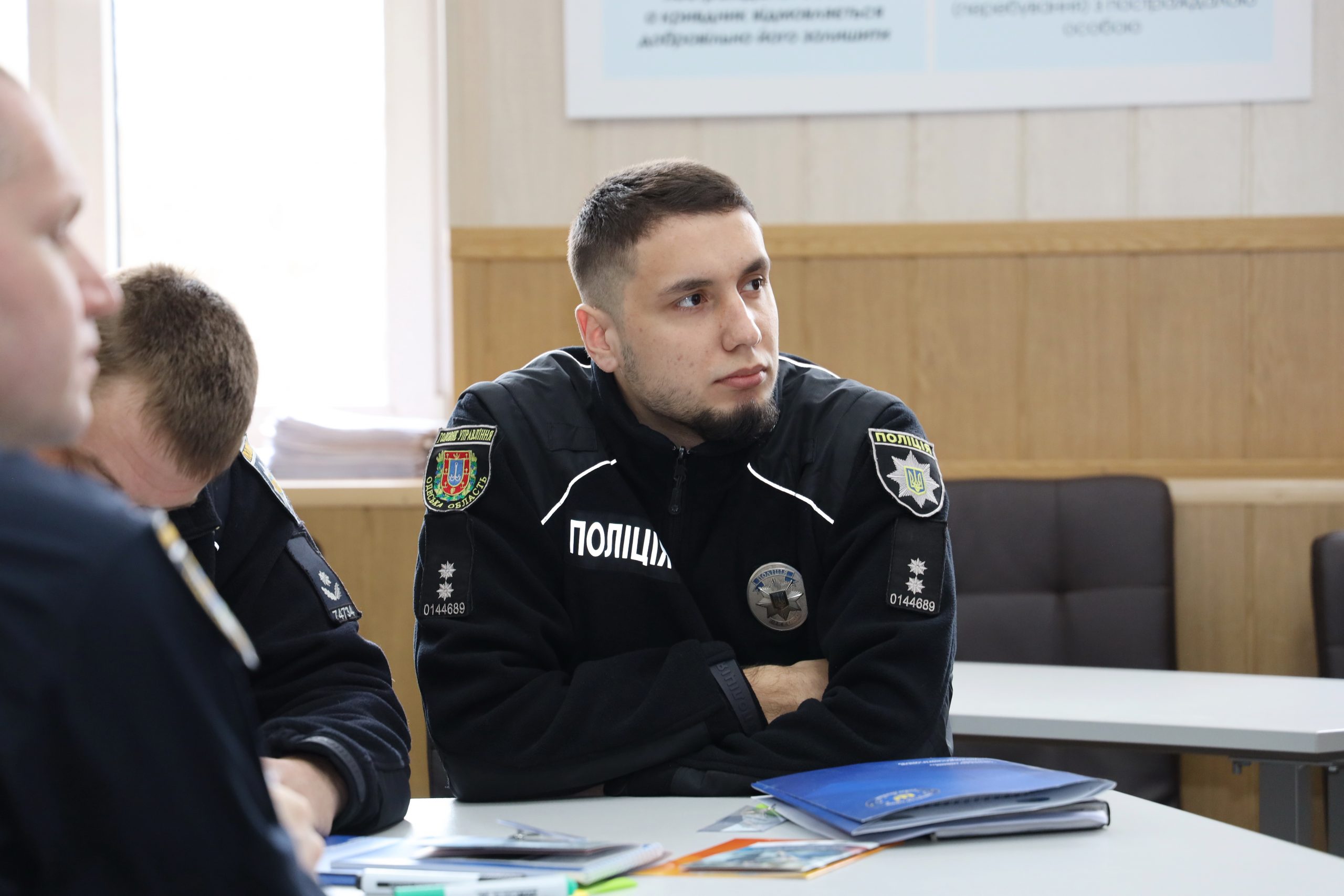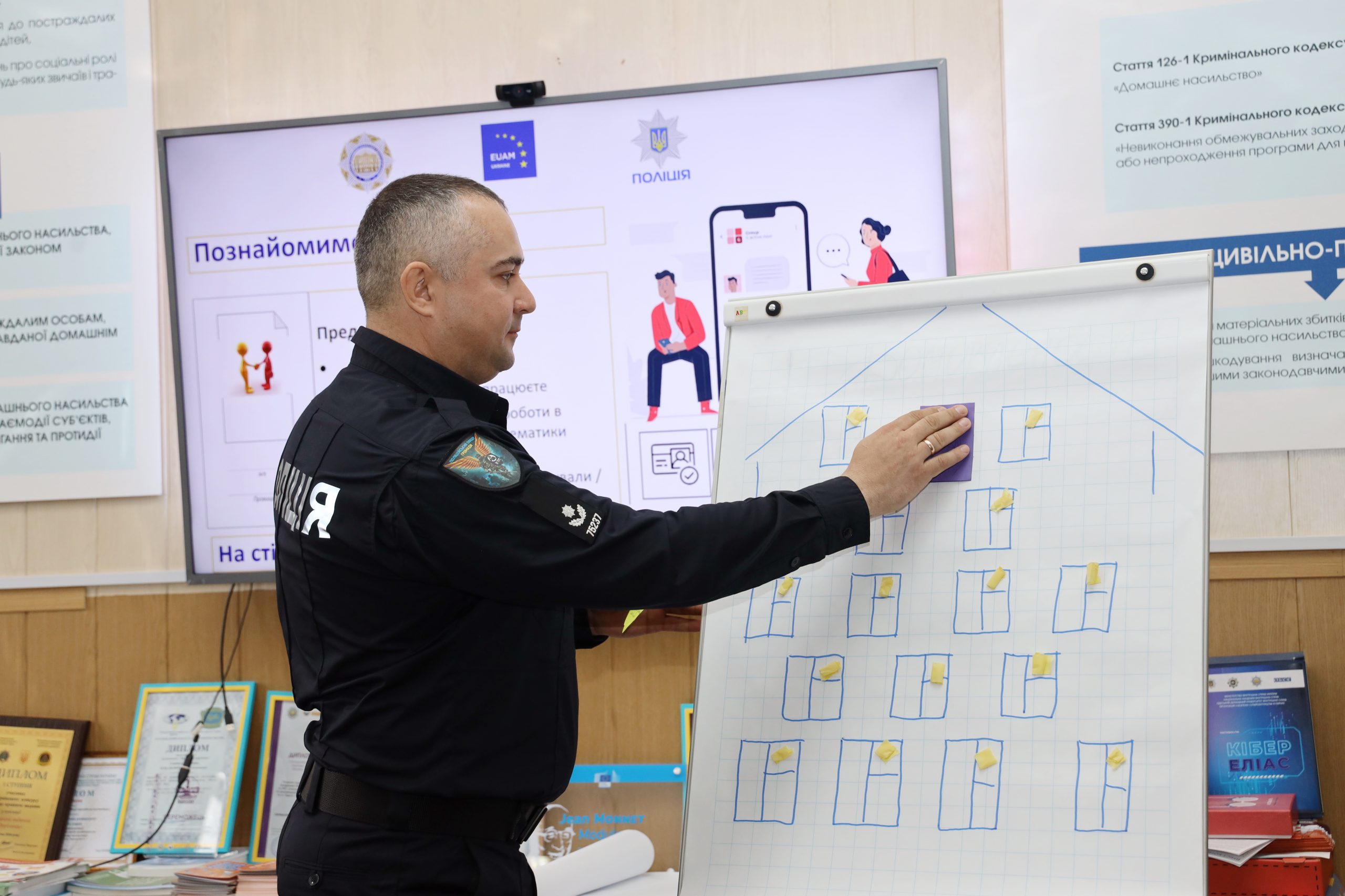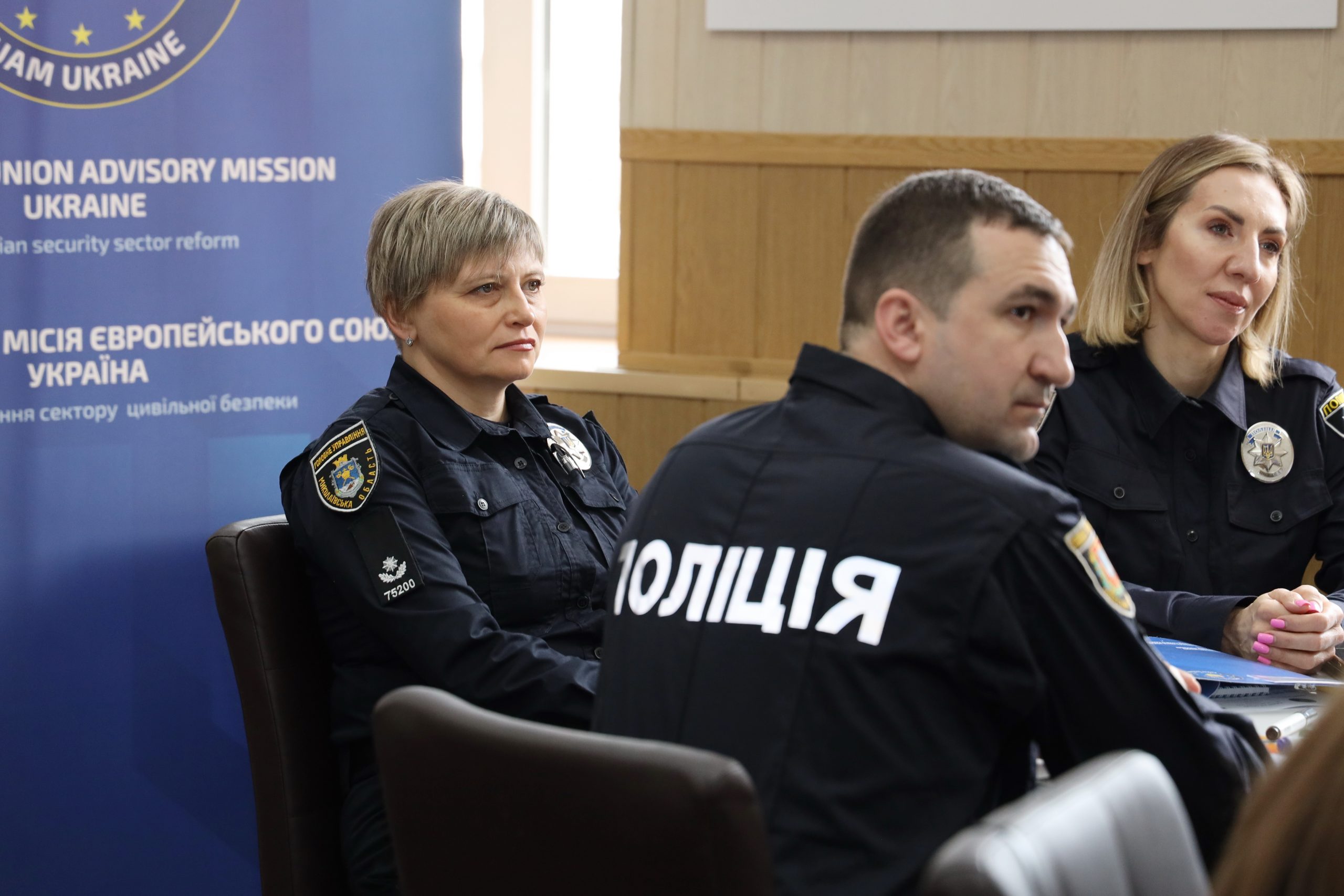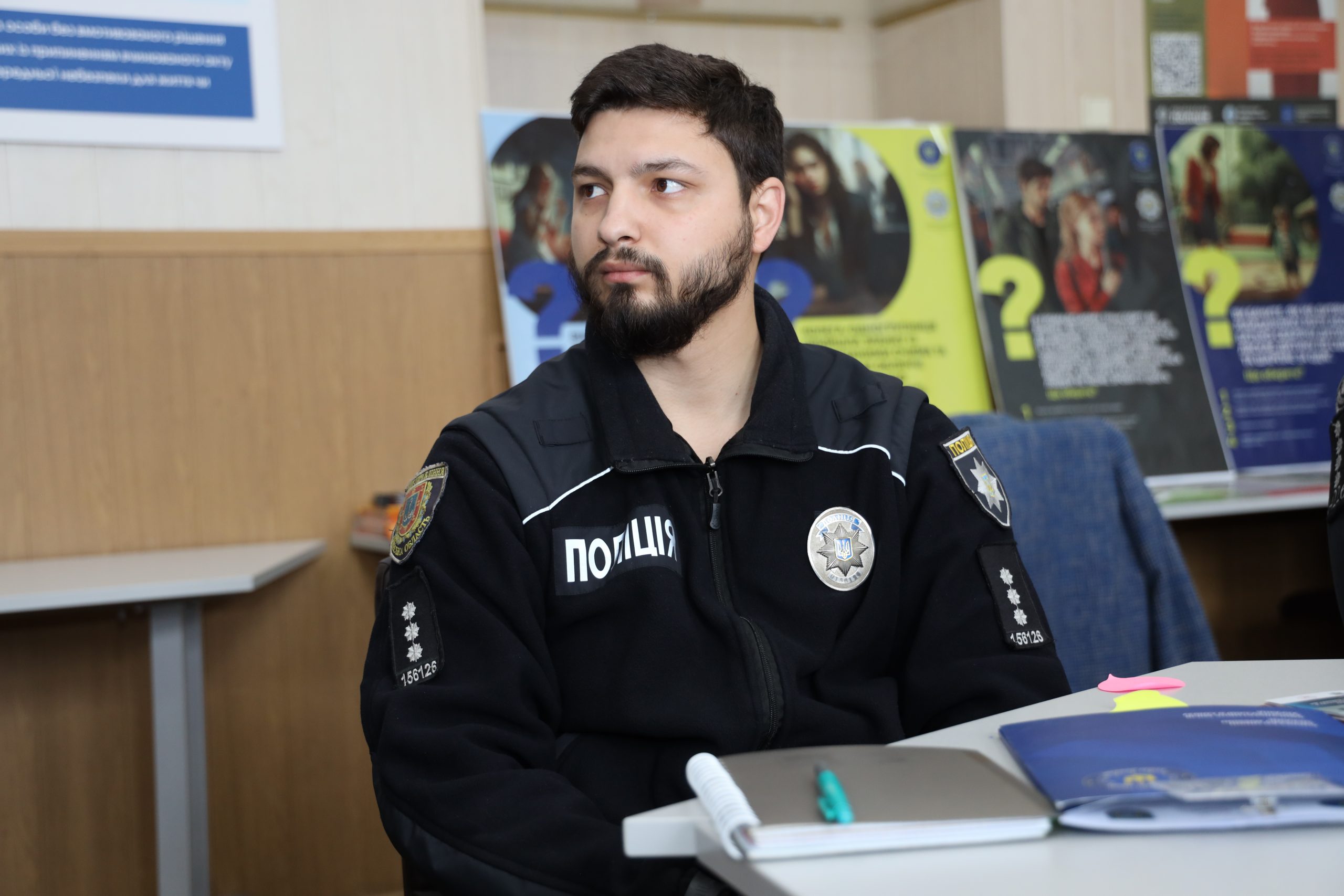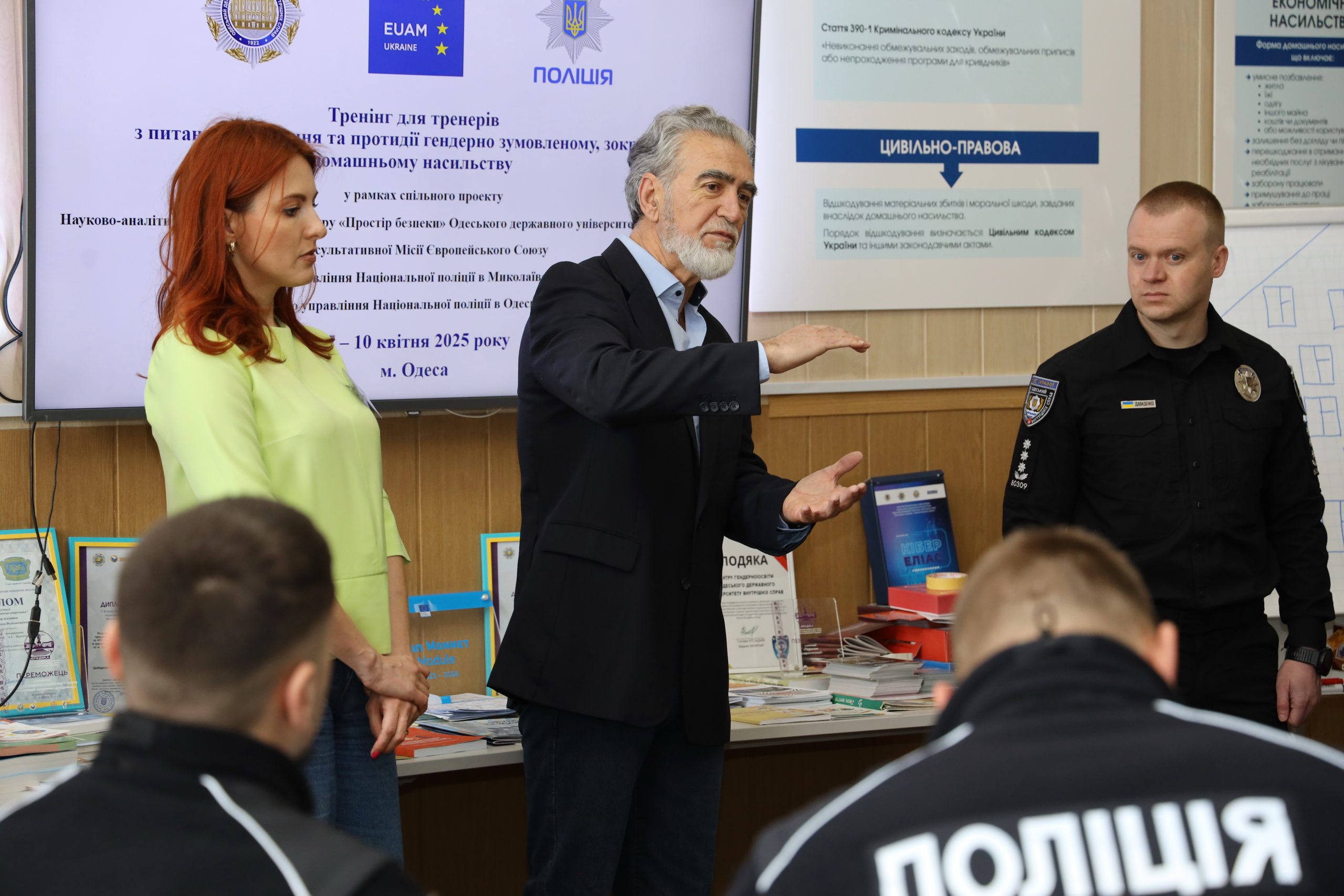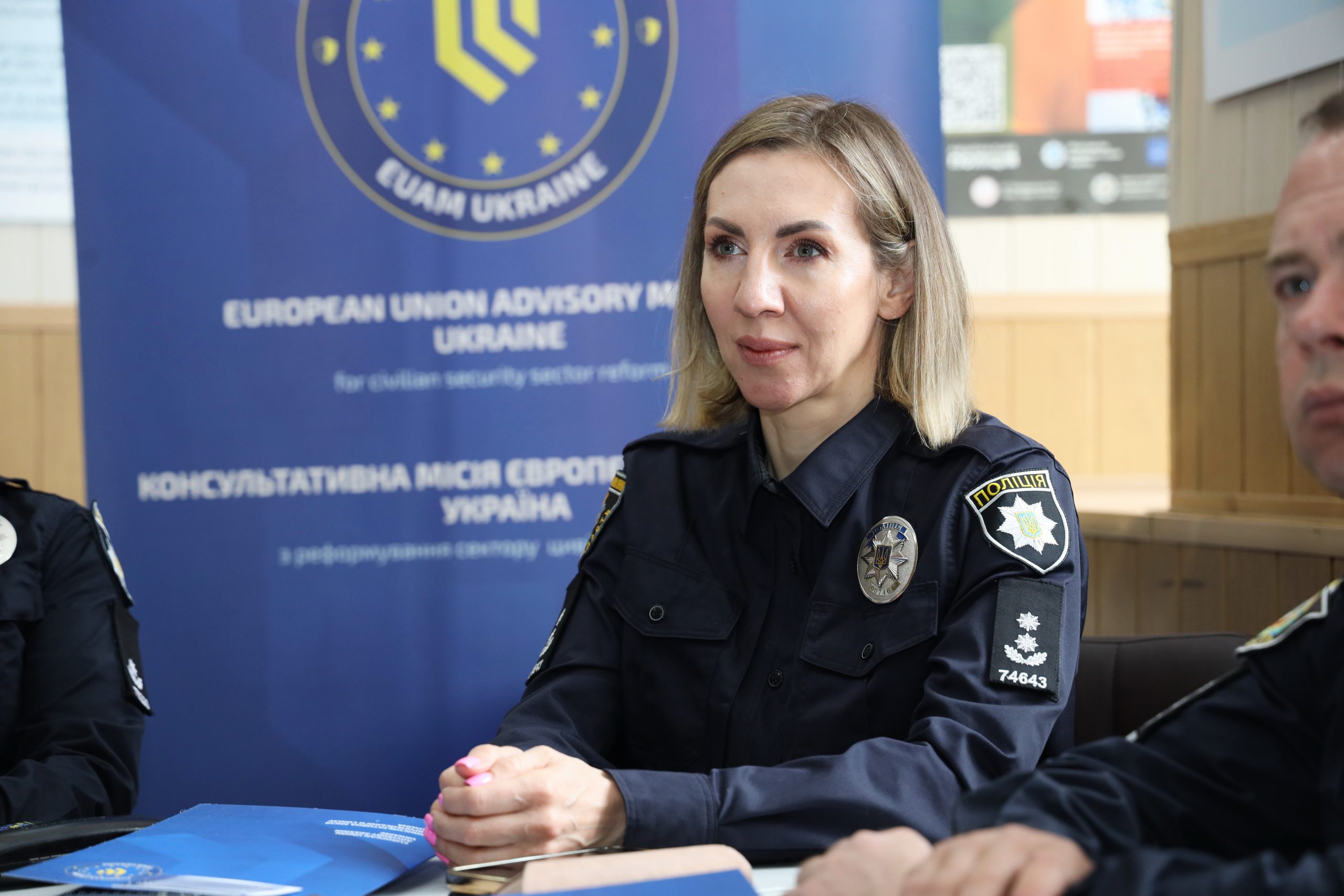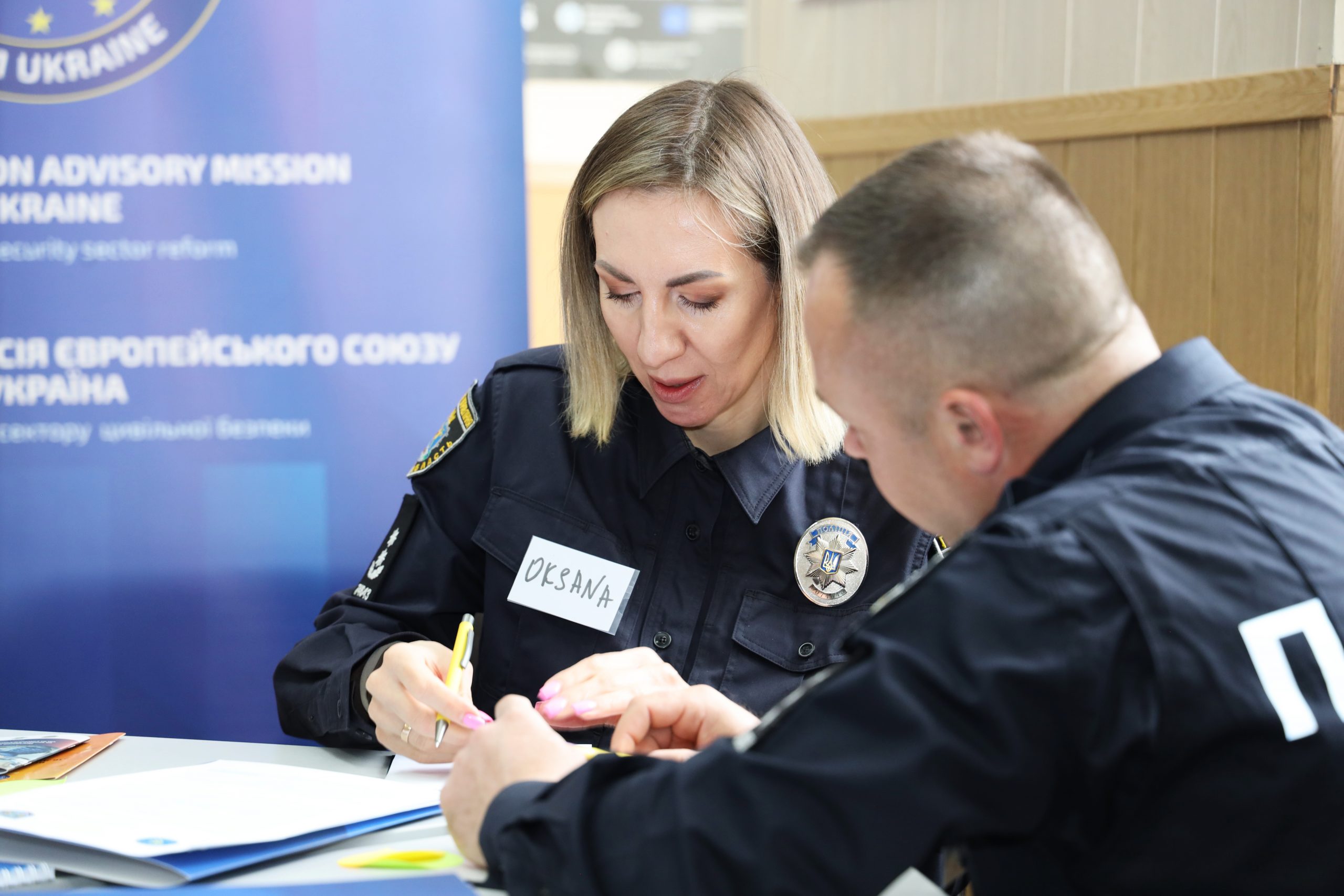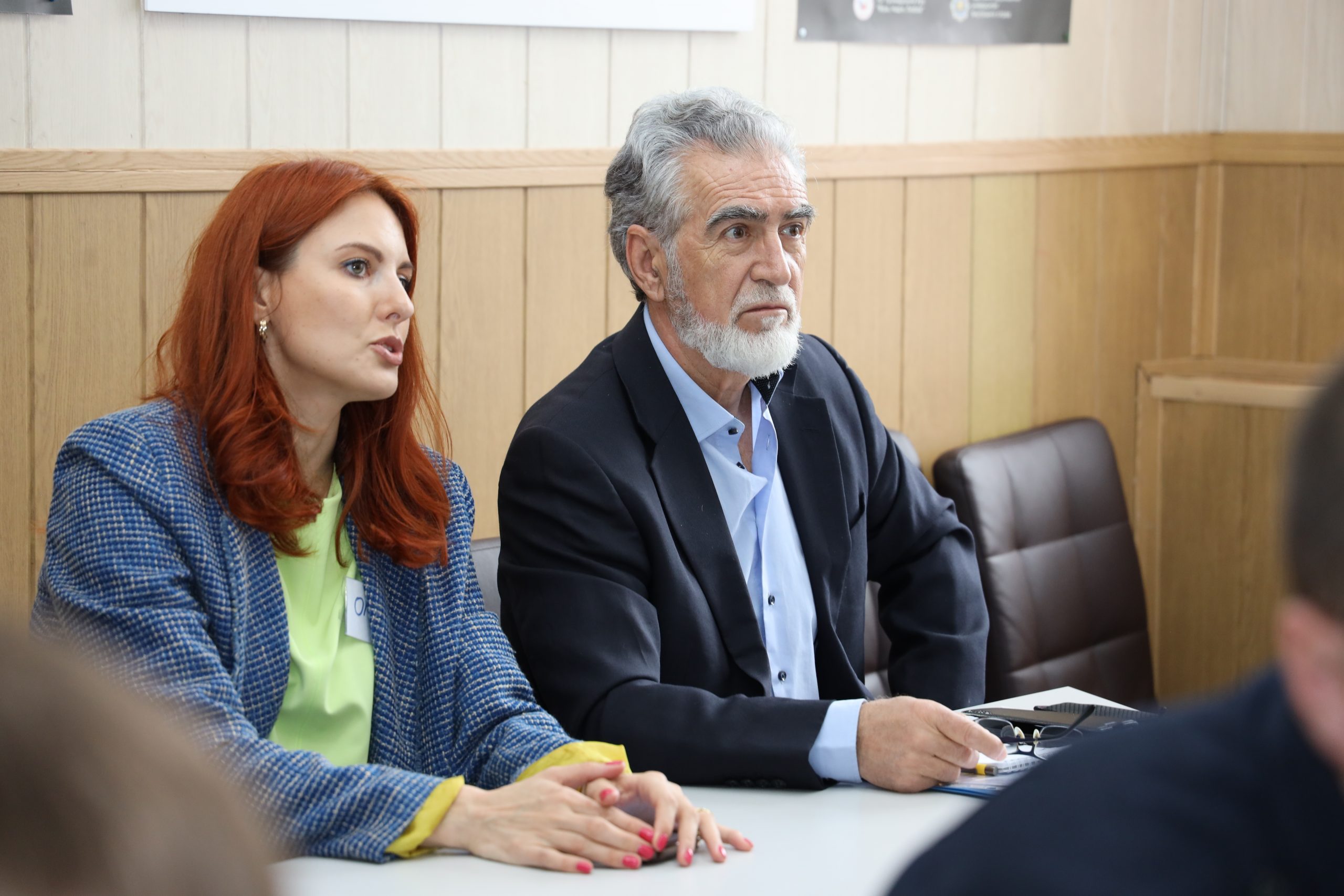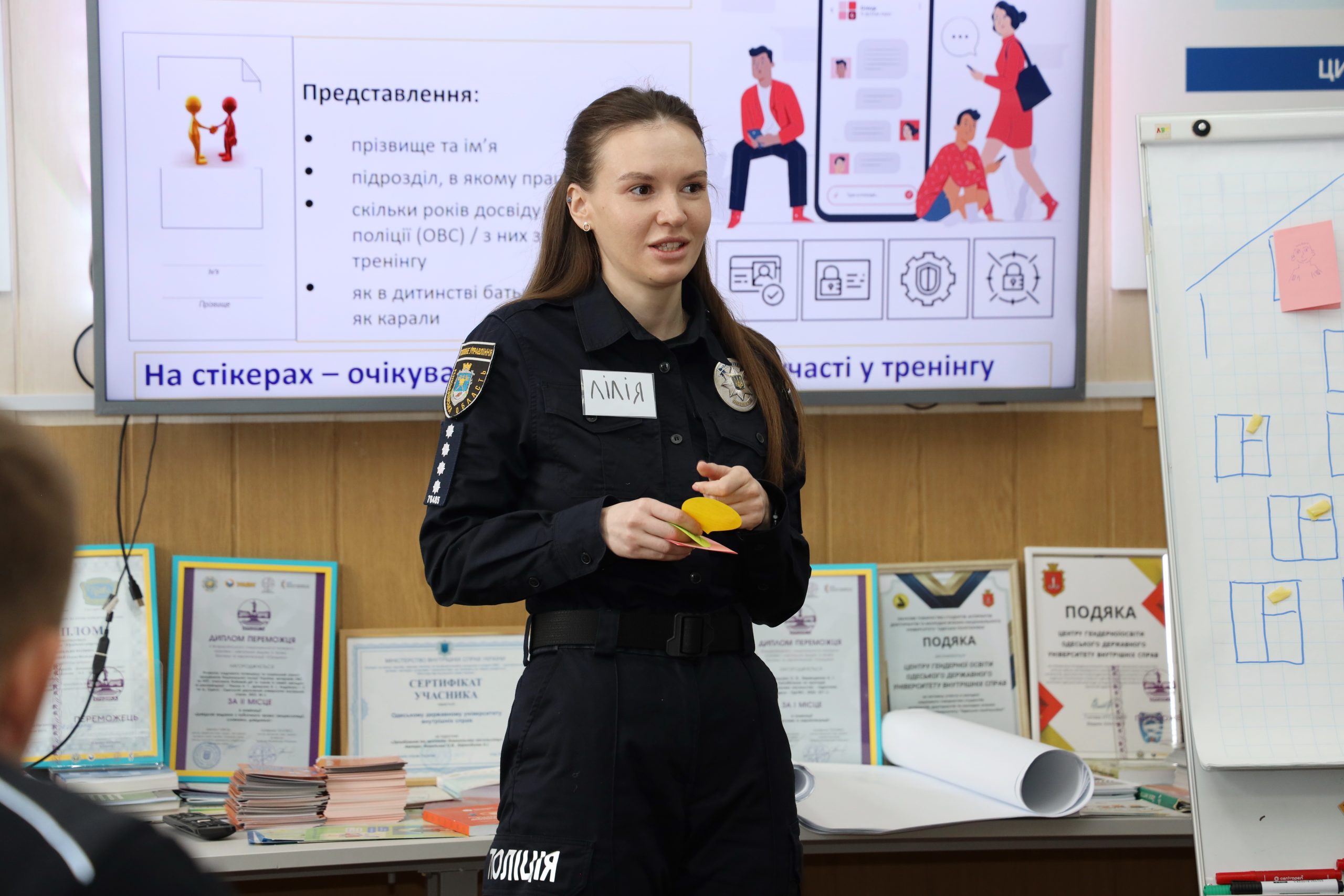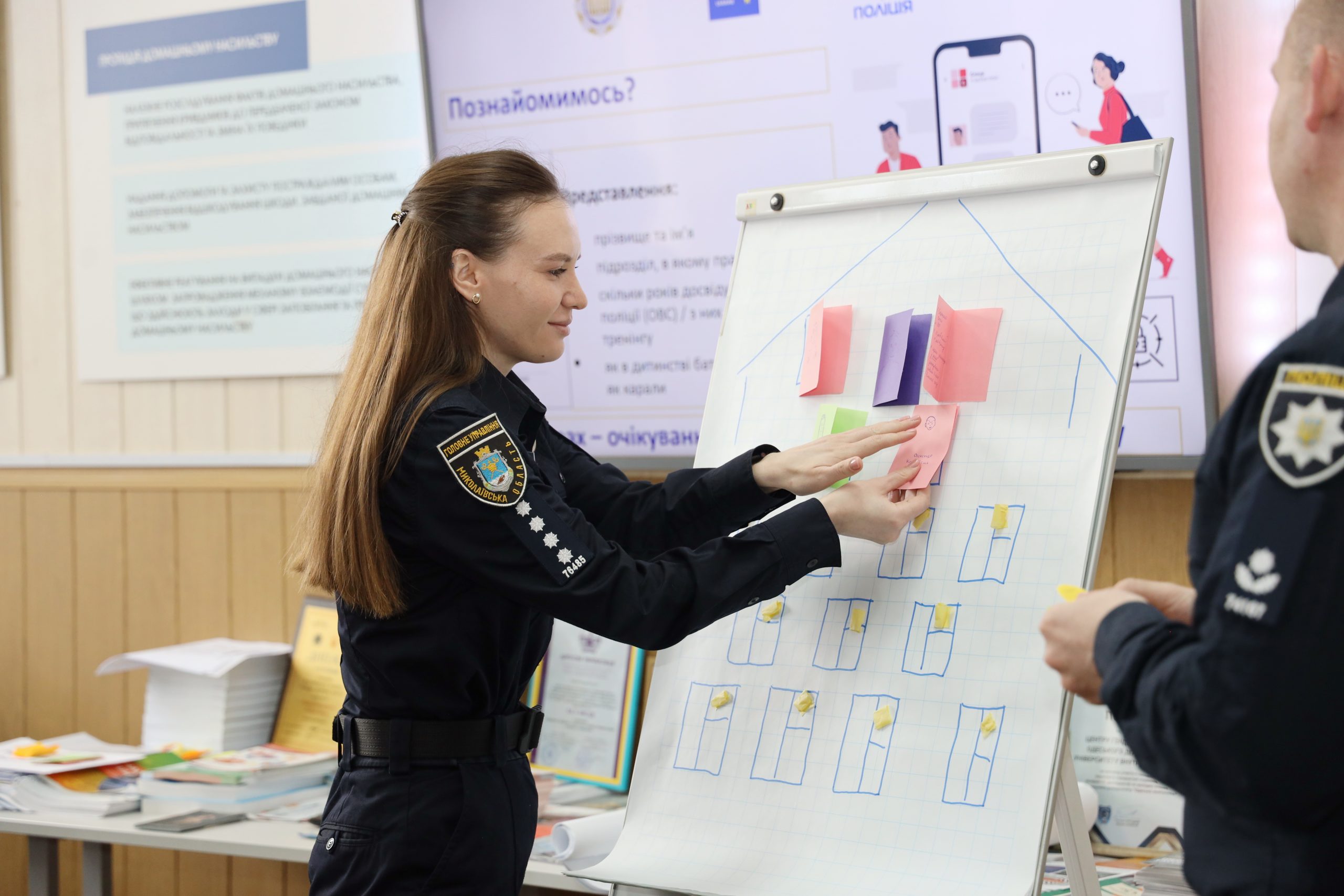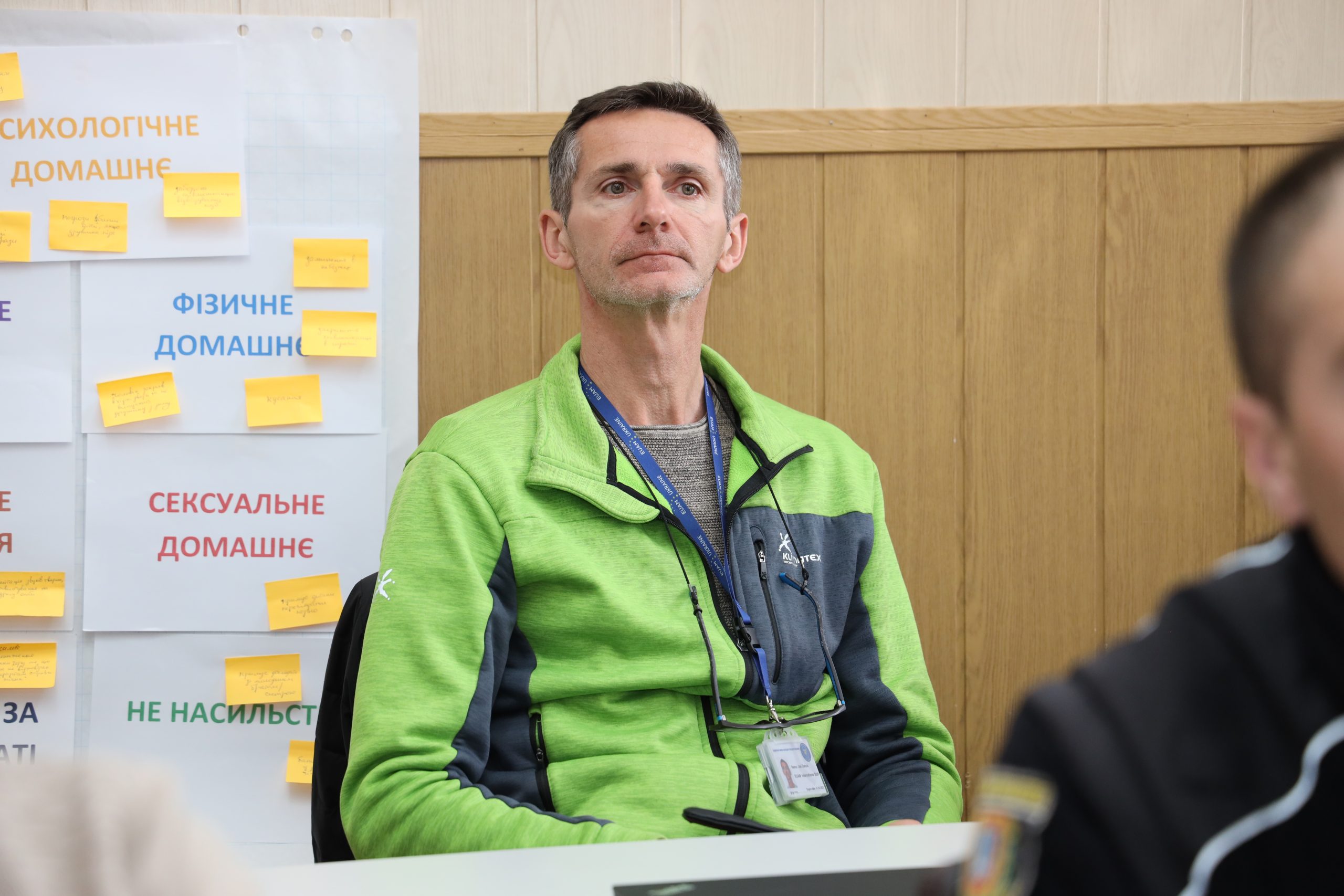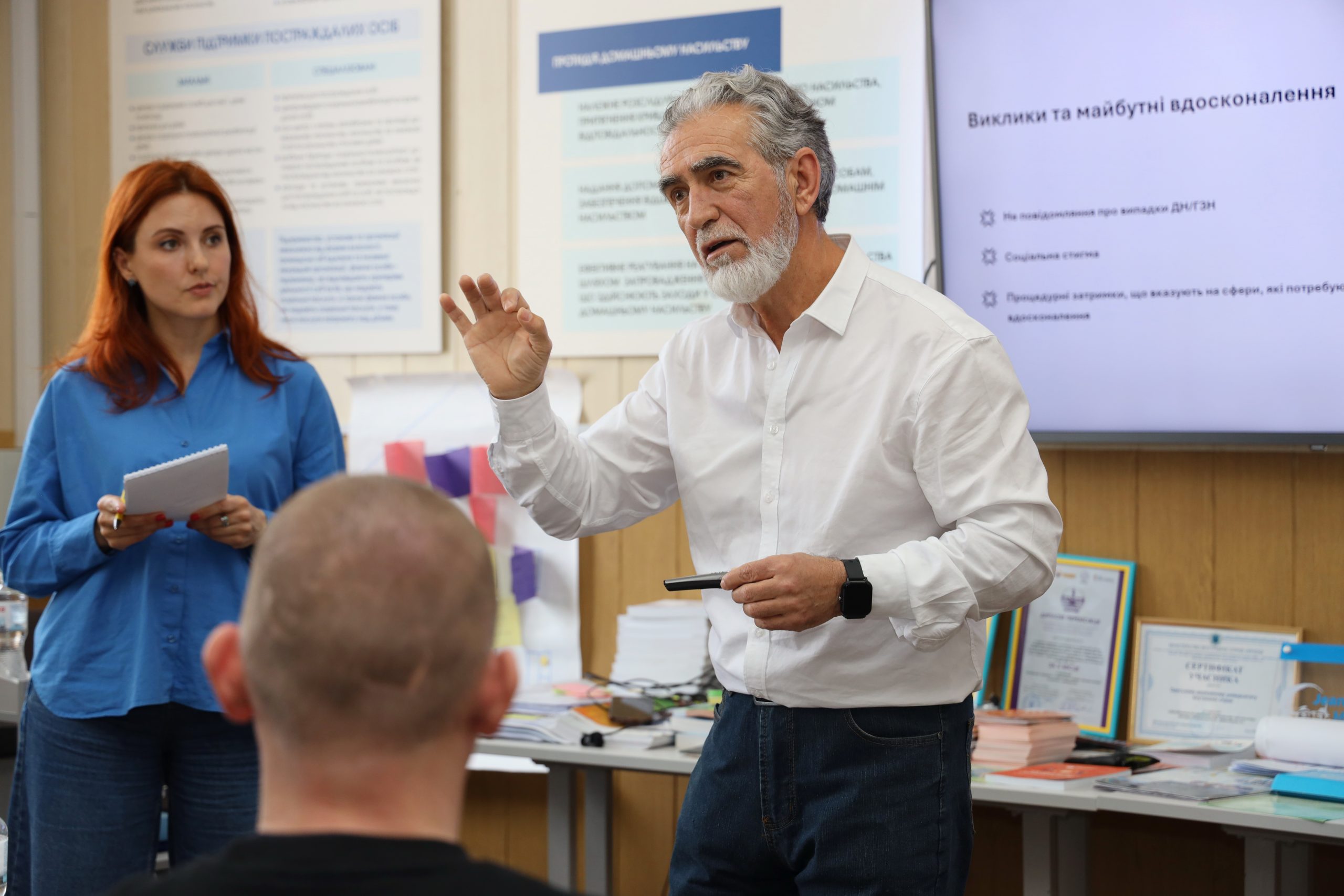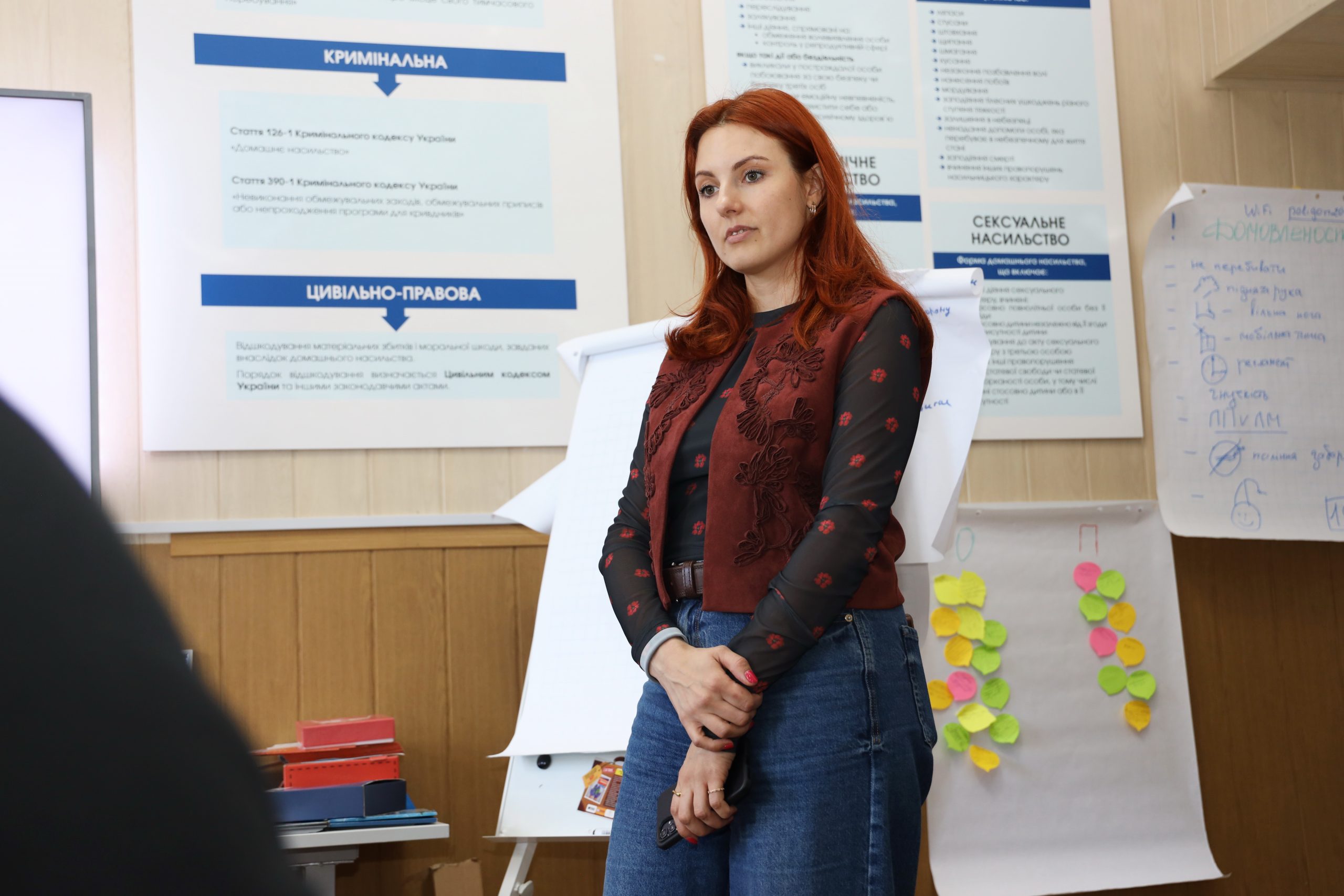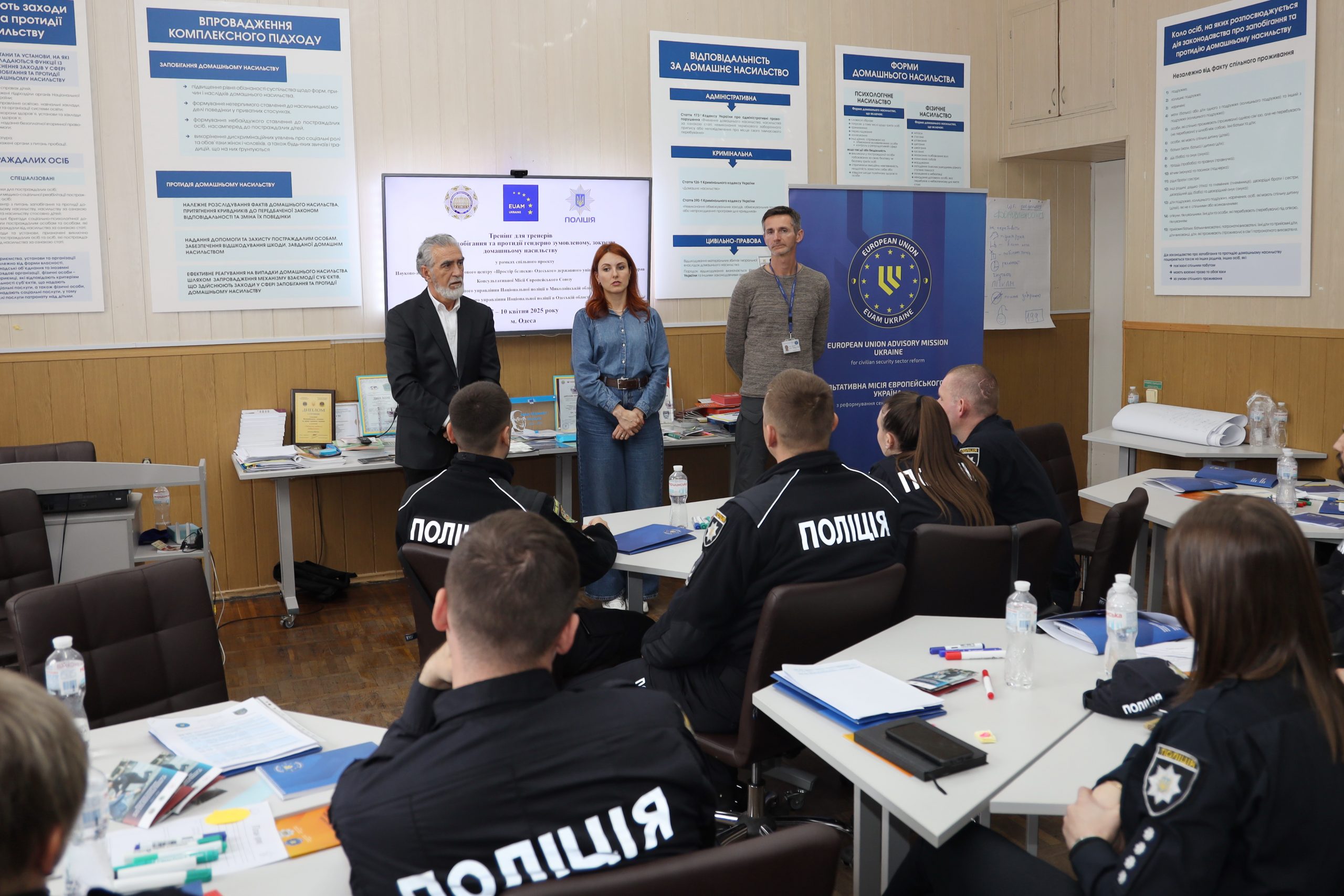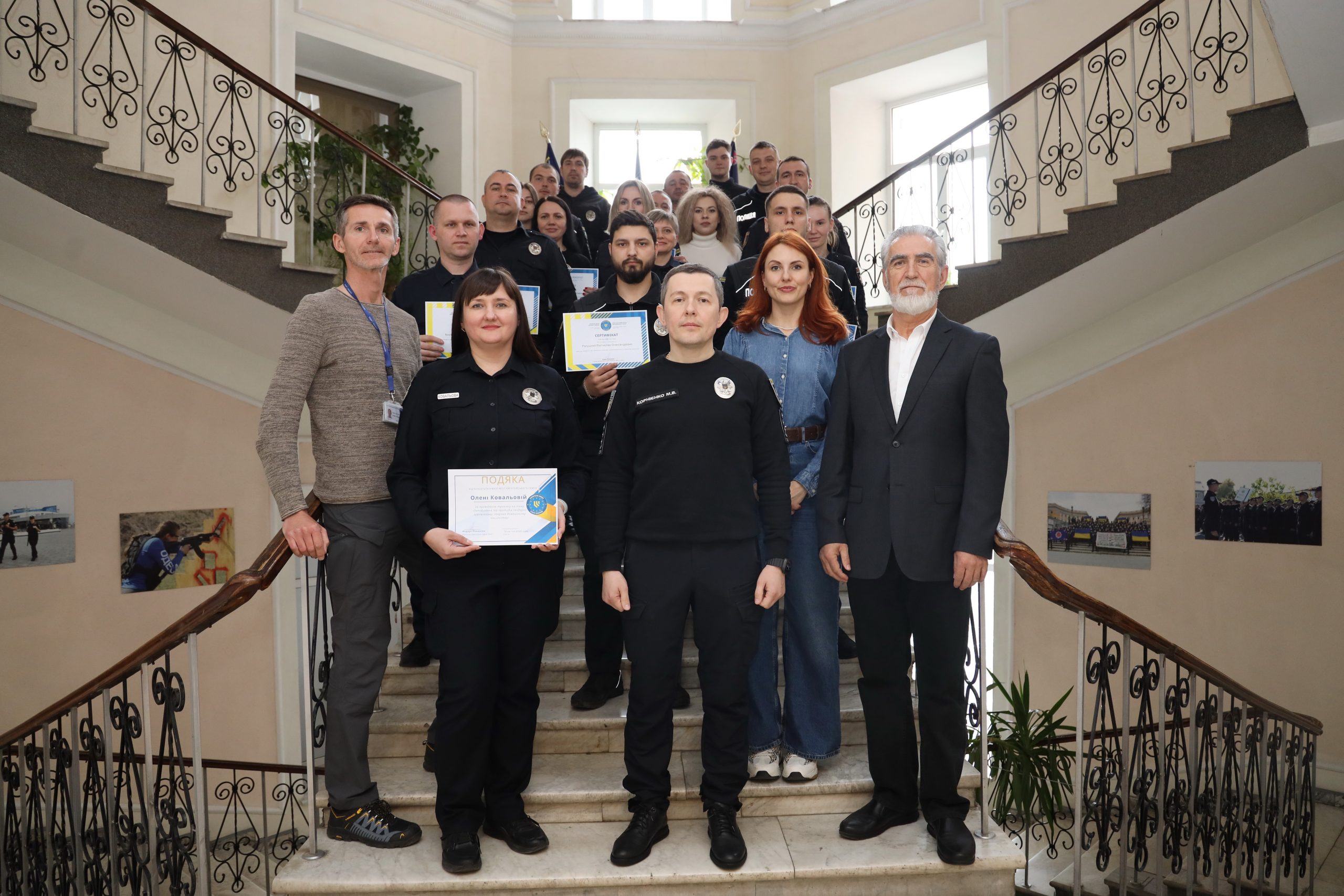Police officers learnt how to combat gender-based violence and to further share their knowledge
April 23, 2025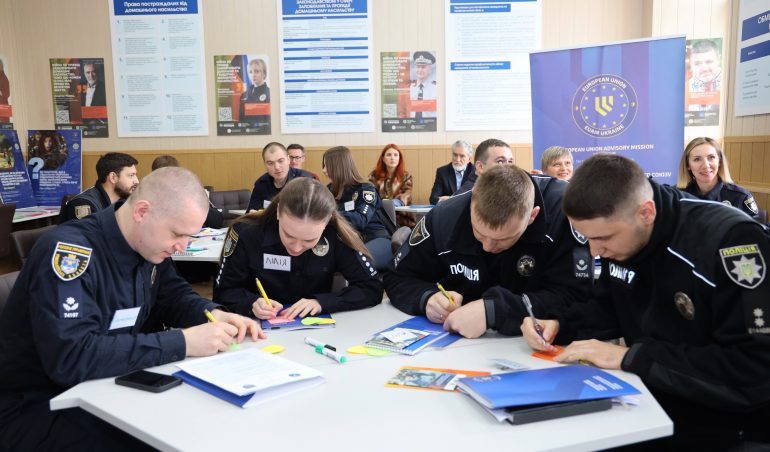
According to UN approximately 2.4 million people in Ukraine, mostly women and girls, are experiencing, or are at risk of, gender-based violence (GBV) and need support services. With the ratification of the Istanbul Convention and recent updates to national legislation on domestic violence (DV) and (GBV), there is a growing need for law enforcement agencies to align their practices with these legal changes.
Responding to this need, the EU Advisory Mission (EUAM) in cooperation with Odesa State University of Internal Affairs provided specialized Training of Trainers from 7 to 10 April for Odesa and Mykolaiv police. The four-day training aimed to strengthen the capacity of police officers not only to respond effectively to DV and GBV but also to share this expertise with their colleagues.
The training covered a broad range of essential topics. Officers explored the concepts, signs, and forms of DV and GBV, including sexual harassment, and reviewed the national legal framework. Participants also examined approaches to protecting children and discussed how to address domestic violence within families of combat veterans. They also reviewed common mistakes police officers make when handling such cases and learnt how to avoid them.
Officers learnt how to inform victims about their rights, including access to free legal aid, and how to guide them toward available social and psychological support.
By the end of the training, officers were better equipped not only to recognize and respond to gender-based violence but also to train others — a key step toward building a more informed, responsive police force and, ultimately, safer communities in the Odesa and Mykolaiv regions.
This training is part of EUAM’s broader efforts to support sustainable reform in Ukraine’s civilian security sector. By building the capacity of law enforcement agencies to prevent and respond to gender-based violence, EUAM contributes to a more accountable, people-centred approach to policing that upholds human rights.


